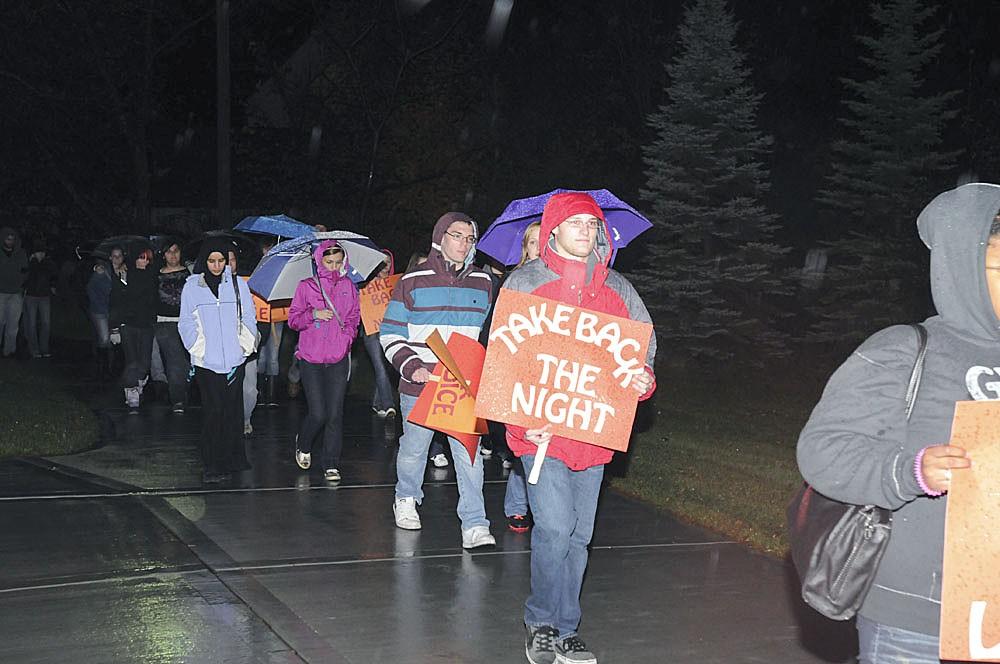Take Back the Night: a lesson in human sympathy

GVL / Eric Coulter Take Back the Night with featured speaker Marta Sanchez ended with a silent march across camous that ended with a chorus of whistles and cheers, breaking the silence
Oct 24, 2011
I’ll be honest: I was not super excited to attend Take Back the Night, an event about sexual assault awareness. I thought it would be so serious that if I dared accidentally chuckle at any point, I might get removed from the area.
I began by talking with the two co-chairs of the event, Jordan Cross and Amanda Johnson, and I started to change my mind about Take Back the Night. They neither pressed me about acknowledging my gender’s crimes against women, nor immediately sprayed me with Mace. Instead, they happily told me about what they hoped to accomplish with this event.
“Sexual assault isn’t something people talk about,” Cross said. “We want there to be no shame in its discussion. We want people to be as actively involved against sexual assault as they are against issues like breast cancer.”
Johnson chimed in.
“Information is key,” she said. “It’s all about informing the audience.”
The audience held a variety of races, genders and ages. I didn’t feel out of water like I thought I would as I sat down.
The group next to me was a predominantly male group whose resident assistant, Kristi Johnson, had made them come. She told me she thought it would be helpful to her “hooligans,” most of whom were cracking jokes to each other when I first sat down. But as the event began, they kept respectably quiet and got as much out of it as I did.
The evening began with a woman sharing the story of how she was raped. Her voice was small and fragile as she described episodes of infrequently consensual sex between her and her then-boyfriend.
I’ve been desensitized to a lot of violent stories thanks to various forms of media, but there’s something different about hearing such accounts firsthand. The guys next to me seemed to feel the same way.
The audience applauded the girl’s bravery, and Marta L. Sanchez, the keynote speaker, began soon after. Somehow she managed to take the dreary mood and set it somewhere more conversational, while using humor to tackle the topic of sexual assault in a more easily digestible way.
The evening consisted, in part, of Sanchez sharing personal anecdotes, reading more of her poetry and advocating the awareness of sexual assault, as well as the recovery process.
In the background throughout the whole performance was a PowerPoint presentation telling her story and sharing her artwork. The art covered themes including sexuality, oppression, Zen and innocence, and used motifs like planets, moons and femininity.
After the event ended, I asked others for their opinions. One woman, Yolanda Cornejo, who had shared a small story earlier, told me something that really brought the point of Take Back the Night home.
“I think it was very powerful,” she said. “It’s a much needed outlet for people who have been sexually assaulted. A comfort. Sometimes something so small like this can make a great impact.”
And I think there’s something to that. I was told that this year’s goal was to incorporate more males into the advocating business and it seems like there are. It’s about awareness, and even dumb white males like me can be made aware of things.
Human sympathy gets increasingly harder to come by as we age. It’s good to be reminded of it every once in a while.























